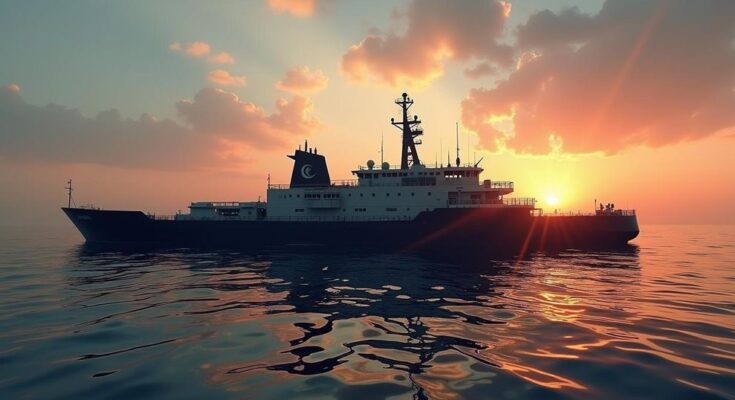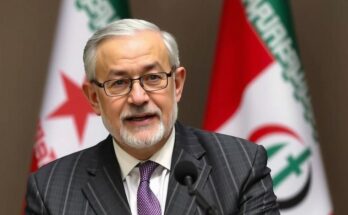Turkish President Recep Tayyip Erdoğan announced the deployment of the Oruç Reis seismic research ship to Somalia, following an agreement for energy exploration. The ship is supported by two frigates, TCG Gediz and TCG Gokova, and aims to conduct crucial seismic surveys over the next seven months. This mission highlights Turkey’s strategic interests in Africa amid ongoing tensions in the Eastern Mediterranean over energy resource claims.
On October 5, 2024, Turkish President Recep Tayyip Erdoğan presided over a ceremony marking the departure of the Oruç Reis seismic research vessel, which is embarking on a significant mission to Somalia. This deployment comes on the heels of a key agreement signed in March between Turkey’s Ministry of Energy and Natural Resources and Somalia’s Ministry of Petroleum and Mineral Resources, which allows for exploration of both onshore and offshore resources within Somalia’s vast energy sector. Accompanying the Oruç Reis are two G-class frigates, TCG Gediz and TCG Gokova, tasked with providing essential naval protection throughout the duration of the mission. These frigates, which have undergone modernization from their original Oliver Hazard Perry-class status, are equipped with advanced technologies, including the GENESIS combat management system, enhancing their operational efficiency in challenging maritime scenarios. This mission represents Turkey’s strategic interests in the Horn of Africa, where it has secured exploration rights over a substantial 15,000-square-kilometer maritime zone off the Somali coast. Over the next seven months, the Oruç Reis will focus on conducting 3D seismic surveys across multiple licensed areas, with the data collected set to play a pivotal role in identifying potential drilling sites for future resource extraction. The ongoing naval presence reflects Turkey’s commitment to protect its energy interests, particularly in regions characterized by high security risks such as piracy and regional instability. Beyond securing its position within Africa, this operation is indicative of Turkey’s broader ambition to expand its influence and access to energy resources beyond the Mediterranean, where the Oruç Reis has previously engaged in controversial exploration activities.
The Oruç Reis research vessel has been pivotal in Turkey’s energy exploration strategy, particularly in the contentious Eastern Mediterranean. The vessel’s deployment has repeatedly come into conflict with neighboring nations, especially Greece and Cyprus, due to overlapping claims to Exclusive Economic Zones (EEZs) in these resource-abundant waters. Turkey’s exploration initiatives commenced in 2020, specifically around the disputed waters adjacent to the Greek island of Kastellorizo, which have been contentious given the distinct interpretations of maritime boundaries between the two nations. Turkey holds that islands should not qualify for full EEZ rights, a perspective that starkly contrasts with the stances of Greece and Cyprus, who advocate for their claims based on the United Nations Convention on the Law of the Sea (UNCLOS). As Turkey is not a signatory of UNCLOS, this situation has exacerbated tensions, leading to military confrontations and the involvement of NATO to mediate conflicts between the two nations.
The deployment of the Oruç Reis to Somalia signifies Turkey’s determination to enhance its influence in the Horn of Africa’s energy sector. This mission not only facilitates Turkey’s exploration endeavors in newly acquired maritime zones but also serves as a reminder of the existing geopolitical complexities facing Turkey in its pursuit of energy resources. As Turkey seeks to navigate the challenges posed by both domestic demands for energy and international relations, the implications of its activities in East Africa will undoubtedly resonate across the broader geopolitical landscape.
Original Source: www.armyrecognition.com




